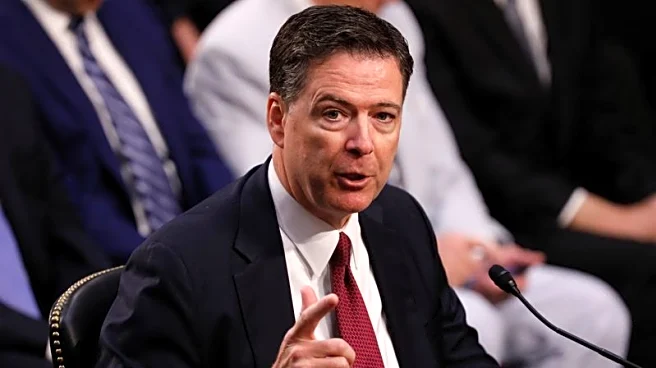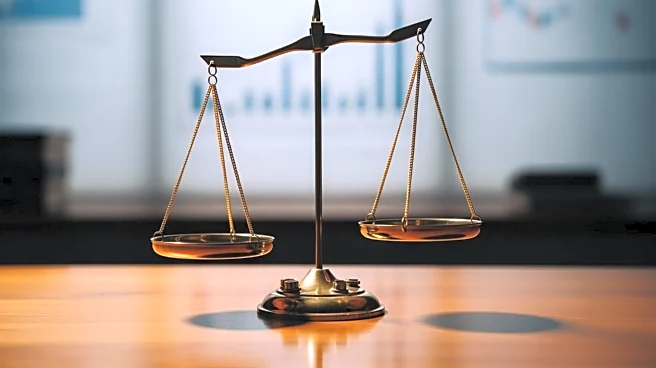By Sarah N. Lynch and Andrew Goudsward
WASHINGTON (Reuters) -A federal judge on Monday dismissed criminal charges against former FBI Director James Comey and New York Attorney General Letitia James, finding that the U.S. Attorney hand-picked by President Donald Trump to bring the cases was unlawfully appointed, in a ruling that dealt a major blow to the Justice Department's efforts to pursue perceived political enemies of the president.
The ruling throws out two cases Trump had publicly called for
as he pressured Justice Department leaders to move against high-profile figures who had criticized him and led investigations into his conduct.
Lindsey Halligan, a former personal lawyer to Trump, was named interim U.S. Attorney for the Eastern District of Virginia in September to take over both investigations despite having no previous prosecutorial experience.
The findings by U.S. District Judge Cameron McGown Currie come after both Comey and James accused the Trump Justice Department of violating the U.S. Constitution's appointment clause and federal law by appointing Halligan in September.
Currie found that Halligan "had no legal authority" to bring indictments against either Comey or James. But Currie dismissed the cases "without prejudice," giving the Justice Department an opportunity to refile the cases with a different prosecutor at the helm.
Trump ordered Attorney General Pam Bondi to install Halligan to the post after her predecessor Erik Siebert declined to pursue charges against Comey or James, citing a lack of credible evidence in both cases.
Shortly after her appointment, Halligan alone secured indictments against Comey and James after other career prosecutors in the office refused to participate.
Comey has pleaded not guilty to charges of making false statements and obstructing Congress. James has pleaded not guilty to charges of bank fraud and lying to a financial institution.
Attorneys for Comey and James argued that Halligan's appointment violated a federal law they said limits the appointment of an interim U.S. attorney to one 120-day stint.
Repeated interim appointments would bypass the U.S. Senate confirmation process and let a prosecutor serve indefinitely, they said. Siebert previously had been appointed by Bondi for 120 days and was then re-appointed by the U.S. District Court for the Eastern District of Virginia, since the Senate had not yet confirmed him in the role.
Lawyers for the Justice Department argued the law allows the attorney general to make multiple interim appointments for U.S. Attorneys. Still, Bondi sought to shore up the cases by separately installing Halligan as a special attorney assigned to both prosecutions. In that same document, she also said she ratified the indictments.
The challenge to Halligan's appointment was one of several efforts lawyers for Comey and James have made to have the cases against them thrown out before trials. Both also argued that the cases are "vindictive" prosecutions motivated by Trump's animosity.
At a hearing on November 13, Currie repeatedly raised doubts about why the Justice Department felt it was necessary to take that step if it believed Halligan's appointment was lawful.
(Reporting by Andrew Goudsward; editing by Scott Malone, Bill Berkrot and Alistair Bell)















